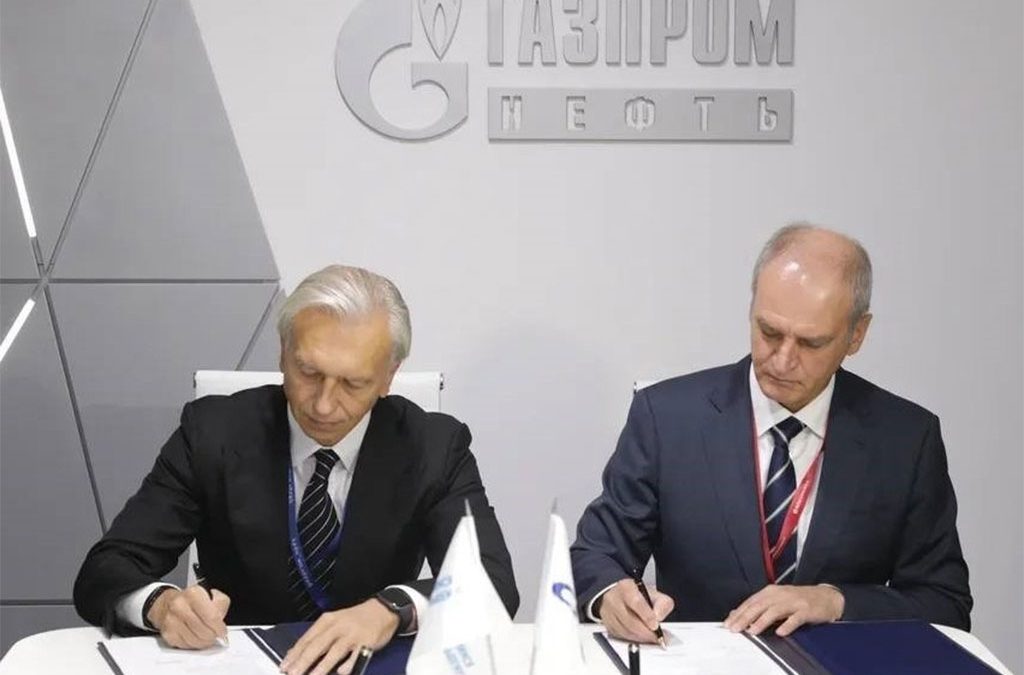On 3 September 2021, as part of the VI Eastern Economic Forum in Vladivostok, PAO Sovcomflot and PAO Gazprom Neft signed an agreement to develop innovative technologies and use low-carbon fuels in maritime transport.
The document was signed by Igor Tonkovidov, President and CEO of Sovcomflot, and Alexander Dyukov, Chairman of the Management Board, CEO, Gazprom Neft.
The agreement defines that the two Russian companies will seek cooperation opportunities in the reduction of ship emissions and reinforcement of safety and efficiency by introducing innovative and digital technologies. It also says that companies will study the prospects of low-emission ships construction that use alternative fuels (including LNG, ammonia, hydrogen, and methanol) and will jointly develop the necessary engineering solutions.
Igor Tonkovidov, President and CEO of Sovcomflot commented:
“SCF’s fleet consistently remains amongst the most technologically advanced and energy efficient within the global energy shipping market – with technological leadership being a key focus and one of the competitive advantages for the company. We believe that the successful development of both the global shipping and global energy industries revolve around global energy transformation and the adoption of low-carbon fuels. We welcome the opportunity to expand our cooperation with Gazprom Neft, a long-standing partner and one of our largest charterers. There is a clear indication that the continued joint efforts to introduce innovations and digitalise energy transportation solutions will help both companies attain their strategic goals.”
Alexander Dyukov, Chairman of the Management Board, CEO, Gazprom Neft, commented:
“Sovcomflot is Gazprom Neft’s main maritime-logistics partner. Vessels owned by Russia’s largest commercial shipping operator transport more than eight million tonnes of Gazprom Neft Arctic blends annually. We are already using digital solutions in working with Sovcomflot and, under this new agreement, will be continuing to develop technologies together. The planned use of liquefied natural gas and other low-carbon ship fuels will ensure stronger environmental standards for Arctic shipping.”
Source: Hellenic Shipping News






